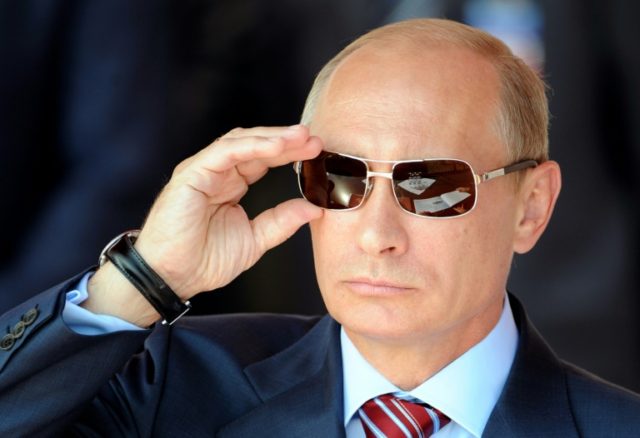In a dramatic turnaround from last year, Russia’s St. Petersburg International Economic Forum attracted huge numbers of Western government officials and business leaders, despite U.S. and EU sanctions that are expected to be renewed.
The 3-day forum, which wrapped up on June 18, is Moscow’s version of the annual World Economic Forum held in Davos each winter, according to Stratfor Global Intelligence.
Through mid-2014, Russia was Europe’s hottest development story, and the IEF was a showplace for Western firms to sign hundreds of agreements worth tens of billions of dollars to develop Russia’s vast resources. But in 2015, participation by European and U.S. firms evaporated due to the “New Cold War” emanating from the Ukraine crisis.
But unlike last year’s dismal IEF, when the sanctions were biting hard and Russia’s currency and budget were under massive pressure, this year’s affair is decidedly upbeat, with former French President Nicolas Sarkozy’s opening day call on June 16 for all Western sanctions against Russia to be lifted.
European Commission President Jean-Claude Juncker was quick to respond that more progress is needed in the Minsk cease fire negotiations between Russia and the Ukraine first. But corporate Europe’s participation at IEF was a major sign that the sanctions regime is being undermined.
Russian Deputy Prime Minister Arkady Dvorkovich and chief economic adviser Alexei Kudrin whispered to the press that private talks with European representatives at the Forum led them to believe the sanctions will temporarily be extended in the next couple of weeks, but substantially eased in 2017.
The combination of crashing oil prices and 21 months of Western sanctions have hammered the Russian government’s budget and caused huge delays in long- and medium-term development deals. Last Sept. 15, the state Energy Ministry had to acknowledge that Russia cannot begin Arctic Sea drilling until at least 2020.
ExxonMobil and Russia’s Rosneft began joint-venture drilling in the Arctic’s extremely high potential Kara Sea in August 2014. But the United States ratcheted up sanctions a month later, and ExxonMobil was forced to withdraw its technical advice and pull out of the project entirely. Given the six years needed to build high-tech infrastructure and complete the sophisticated drilling, the first Kara Sea oil is now not expected to come online until the second half of the 2020s.
With many of Soviet-era fields in Siberia continuing to play out, low oil prices and sanctions are preventing Russia from gaining the financing and shale drilling expertise to remain the world’s leader in oil and gas production.
But Russian counter-sanctions have also been extremely painful for Europeans. The economies of the Baltic countries, which traditionally rely on Russia as a major market for their agricultural exports, have been savaged. Exports in 2015 to Russia from Estonia plunged by 41 percent; Lithuanian exports tanked by 38 percent; and Latvian exports sunk by 24 percent. Even distant Italy suffered about $1.3 billion in losses due to the Russian food embargo, according to the powerful Italian Agricultural Producers Confederation.
But other EU non-ag countries have also felt pain. Germany’s industrial goods trade with Russia dropped 34 percent in the first half of 2015.
With Italy arguing the loudest among EU members against a 2016 automatic extension of Western sanctions, Russia asked Italy to co-host the IEF and offered to allow Italy to promote its own business at the Forum. Italian firms signed a string of deals with Russian firms worth at least $1.7 billion, including an invitation for Italian energy giant Eni to join India and China in a bid this year potentially to privatize a piece of Rosneft.
Important IEF deals for Russia included Royal Dutch/Shell’s signing of a deal with Russia’s Gazprom for a $10 billion liquefied natural gas facility on the Baltic Sea, and Britain’s BP signing a joint venture deal with Rosneft to explore for oil reserves in Siberia.
Russia has signed a number of deals with China, India, Qatar, Kuwait, the United Arab Emirates, and others. The biggest is a $600 million first phase for a knock-off “Hyperloop” train between Northern China and Russia’s Pacific port of Zarubino.

COMMENTS
Please let us know if you're having issues with commenting.